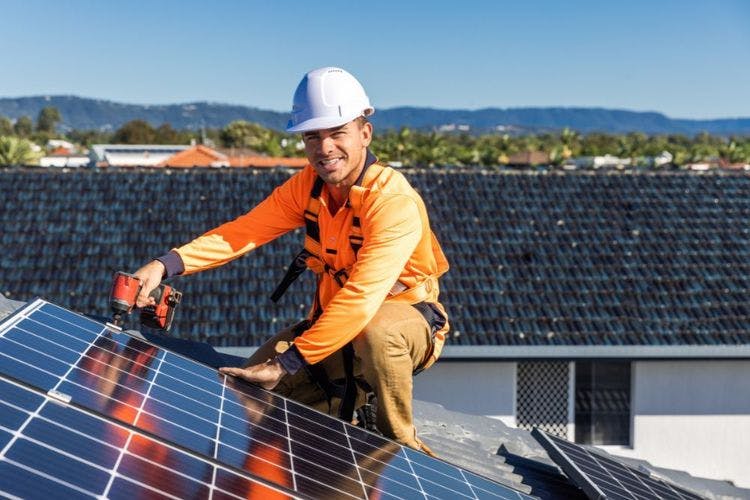1. Pros and cons of DIY solar panel setup for home use
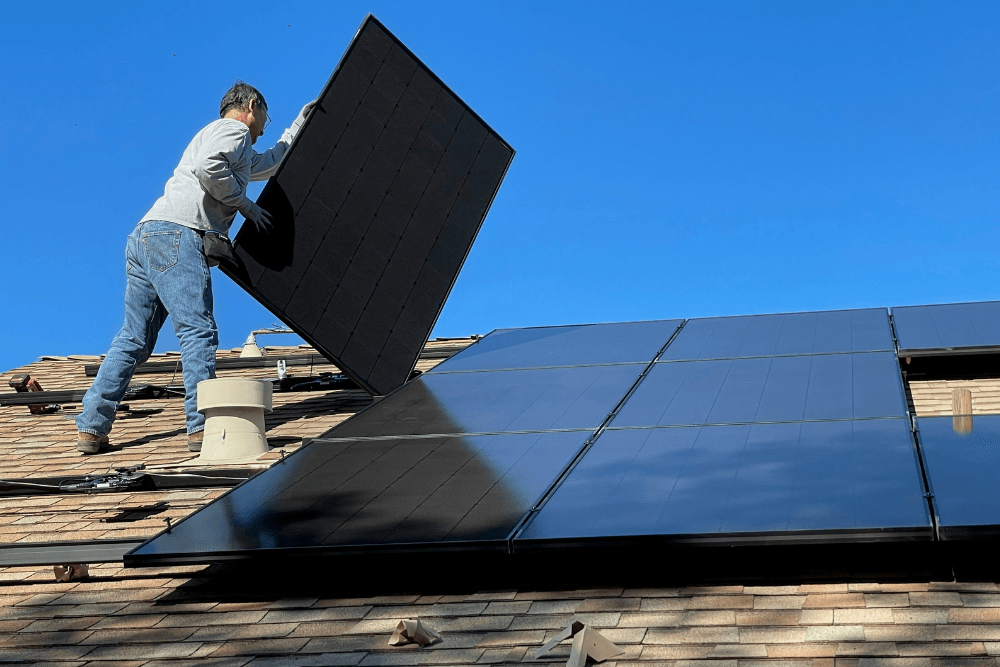
Pros
One of the main pros of DIY solar panel installation is the cost-saving potential. When you can save on the cost of labour, you can reduce the total cost of installation significantly.
On top of that, it gives you the power to do the job the way you like it and be certain that the installation is done as per your specifications.
Cons
DIY solar panel installation can provide some benefits but there are some challenges which also have to be taken into account.
The obvious disadvantage is the need for technical knowledge. Setting up solar panels requires advanced skills as well as an in-depth knowledge of construction codes and laws. If you are not experienced in these areas, there is a chance of improper installation, which in turn may lead to inefficiency and even damage to your home.
The warranty aspect can also be a challenge for DIY solar panel setup for home use. The majority of solar panel producers offer warranty terms for professional installation. If you decide to install the panels on your own, you can essentially void the warranty for the products—which means that you will personally be liable for any repairs or replacements that may be needed in future.
2. Common challenges and how to overcome them
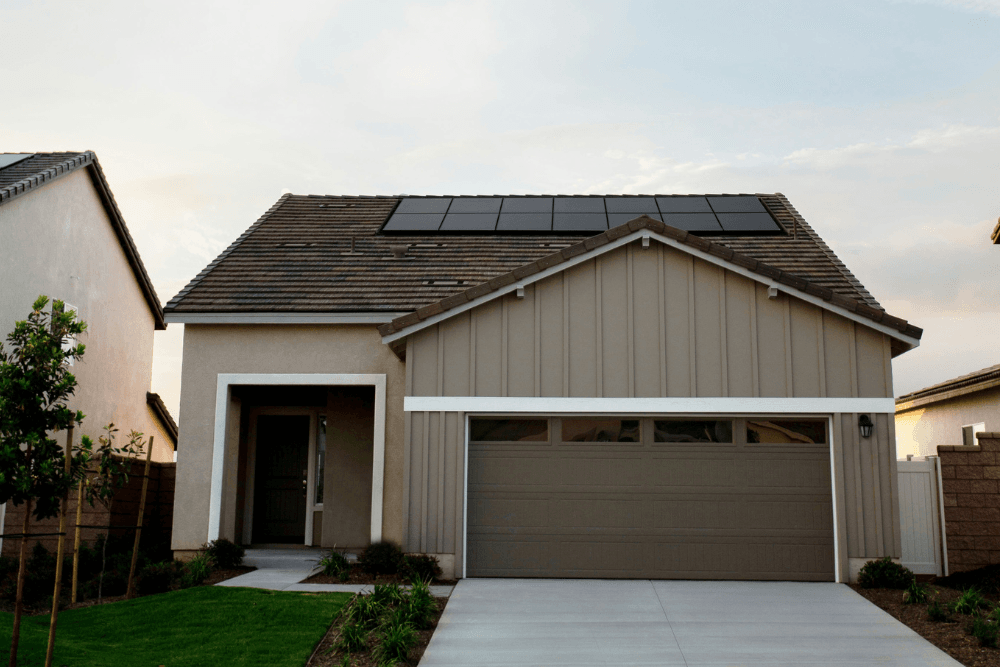
Now, let’s take a closer look at the challenges that you may face with DIY solar panel installation and how you can potentially overcome them.
Technical expertise
Solar panel installation requires a lot of technical knowledge, and this is one of the biggest and most obvious challenges you will face when trying to DIY this process.
Educating yourself with online resources, videos, and tutorials that will guide you through the process and even attending workshops to get hands-on experience will be helpful in this instance.
Building codes and regulations
Another common challenge that you will face when DIYing your solar panel installation is navigating the building codes and regulations in the UK. Depending on where you live, local authorities will have specific requirements and permits that you have to obtain before installing solar panels.
This means that you will have to meet with your local planning department and make sure compliance is not an issue. Alternatively, you can hire a professional to help you get the necessary permits.
Safety considerations
Safety should always be a top priority, especially when working with electricity. DIY solar panel installation requires working with high-voltage electrical systems, which can be dangerous to you, your home, and the solar products if not handled properly.
You should always wear protective gear like gloves and safety glasses and follow safety guidelines when conducting solar panel setups for home use. If at any point you are unsure about any aspect of it, it’s best to consult a professional.
3. Cost comparison: DIY vs. professional installation
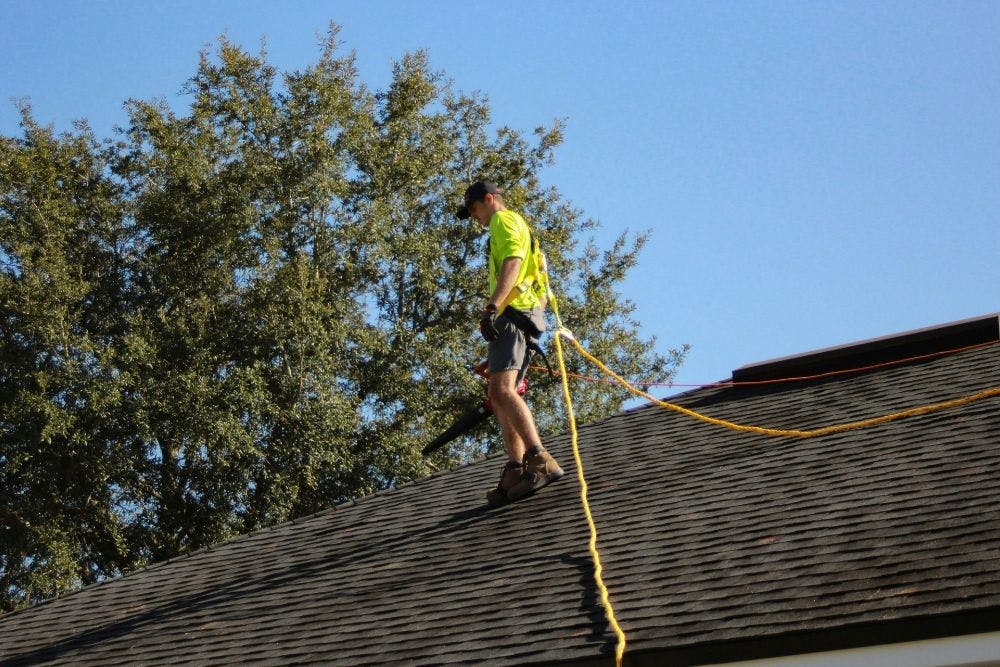
Cost is understandably a crucial factor when considering DIY solar panel setup. It can save money on labour costs but you should also consider the overall expenses involved in installation when making this choice.
The average cost of a 4KW solar panel system in the UK is around £9,000-£10,000—including installation costs. These systems are ideal for houses with 2-3 bedrooms.
When it comes to labour costs, it can cost around £300-£500 per person per day, and it usually takes 2 days to install a 4KW solar panel system. This means that installation will cost you around £600-£1,000, approximately 10% of the total cost.
However, professional installation also offers the benefits of expertise and experience so that you won’t run into trouble later down the road. Professionals will also most likely have better-quality equipment and offer bulk discounts, further reducing the cost.
So when you’re considering whether or not to DIY your solar panel installation, consider factors such as budget, time available, and the technical skills you possess. While DIYing may seem like a cost-effective option in the short term, solar is a long-term investment. Consider that too when choosing solar installation options.
4. Benefits of hiring a professional for solar panel installation
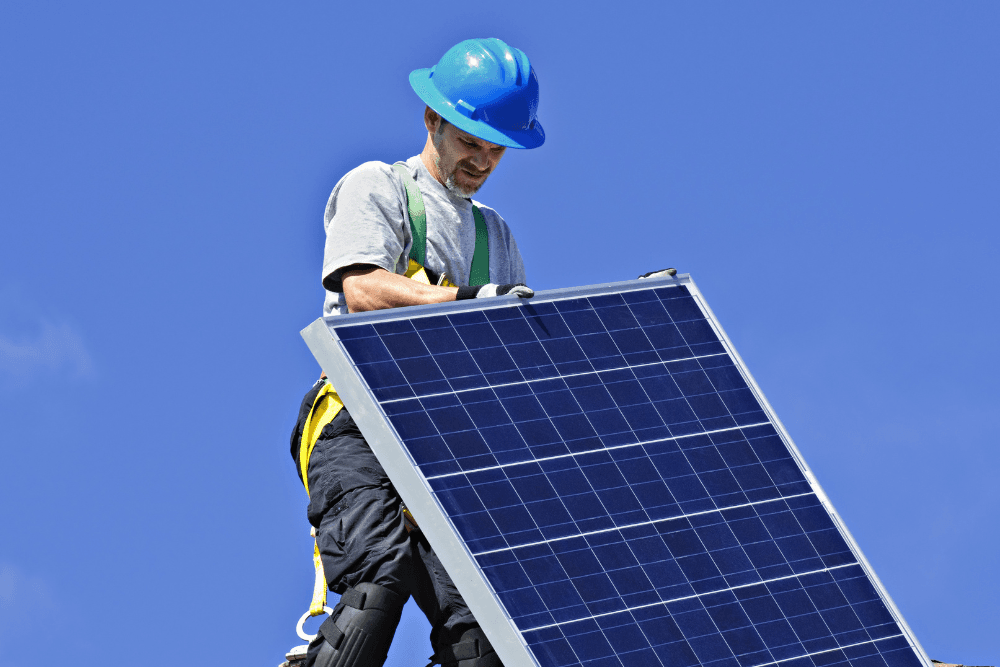
Now that you’re aware of the ins and outs of DIY solar panel installation, let’s take a look at why you may want to consider a professional.
Expertise and experience
Successful installation is guaranteed with professional installers as they have the expertise and experience necessary to do so. They know industry standards, building codes, and how to optimise the performance of your panels so you can get the most out of them.
You will have the peace of mind of knowing that the installation is in capable hands with professional installers.
Time-saving
As you might have guessed, solar panel installation is not a simple process, especially if you’re not familiar with it. It can take a lot of time—time that you may not have to spare.
With a professional installer, this won’t be an issue. Depending on the number of labourers you decide to hire, the installation will be completed within a couple of days at most, and you will have time to focus on other aspects of your daily work in the meantime.
Warranty protection
Solar panel manufacturers offer warranties for their products; however, they will most often be contingent on professional installation. This means that you can ensure that your warranty remains valid by hiring a professional for the installation process.
You can also rely on the installer to offer repairs or replacements if something happens to your installed system.
5. Financing options for solar panel setup for home use

There are multiple financing options in the UK to make the process of your solar installation even easier.
The Smart Exports Guarantee (SEG) is the first incentive that comes to mind. This allows small-scale generators like households to get paid for the excess energy they send back to the national grid via certain electricity suppliers, known as SEG Licensees.
The Renewable Heat Incentive (RHI) offers financial support for renewable heating systems, including solar thermal panels. This scheme provides quarterly payments to homeowners who have installed eligible systems, helping to offset the upfront costs.
Additionally, the VAT for solar panels in the UK—whether it is for the whole product or simply for the installation—is 0%. So, the process of actually getting a solar power system installed is also significantly cheaper, at least until March 2027.
You may also be eligible for solar loans and green mortgages so you can make the process of installing solar panels more affordable.
6. Making the right choice for your home’s solar panel setup
If you are torn between DIYing your solar panel setup or hiring a professional, it ultimately depends on your budget, skills and expertise, and personal preference.
DIY installations can make immediate costs lower, but there are some challenges associated with it as well. You will lose out on the expertise, time saved, and warranty protection that comes with professional installation.
If you do decide to opt for a professional installer, make sure you take the time to research and choose the best for your requirements. Reputation, certifications, and pricing are also very important considerations to make.
You can also join Solar Save Club, where we can set you up with a reliable solar installer in your area. All you need to do is fill out the questionnaire — click here to get started and find the ideal installer, so you can enjoy the benefits of solar right away.

